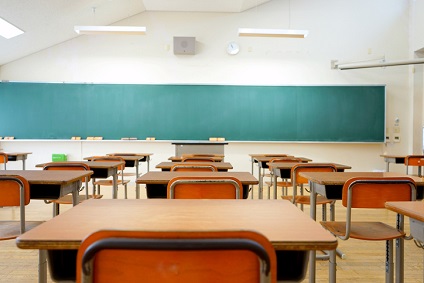
CREDIT: This story was first seen in the Independent
More than a third of physics teachers do not hold a degree in the subject, official figures show, the Independent reports.
In addition, more than a fifth of maths teachers, and almost the same proportion of English staff, hold no higher than an A-level in the disciplines.
DfE data also reveals that children in many English secondary schools are being taught other core academic subjects, including chemistry, geography and languages, by teachers lacking subject expertise.
The findings come amid concerns raised over a shortage of science and maths teachers, on top of a growing recruitment crisis in England overall.
As a result, school leaders are being left with no choice but to assign staff to lessons in subjects they have little or no experience of. As of November last year, 37.3% of physics teachers held no relevant post A-level qualification in the subject.
Press Association analysis shows that this proportion has risen from 33.7% five years ago.
Last year more than a quarter of chemistry teachers (25.1%) held no higher than an A-level in the subject
Among maths teachers, 22.2% did not hold a relevant degree last year, while in English it was 18.6%. These figures have both dropped since 2011.
For the other sciences, last year more than a quarter of chemistry teachers (25.1%) held no higher than an A-level in the subject. This is around the same as it was five years ago, suggesting no improvement has been made despite government efforts to recruit from abroad.
Earlier this year, the government relaxed immigration rules for computer-science and general science teachers in a bid to address the shortage, marked at “critical”.
Maths and physics were already on the Shortage Occupation List, governed by the Migration Advisory Committee, but chemistry teachers were removed from the list as they were no longer deemed an acute concern.
In biology, 9.1% of teachers did not hold a relevant higher qualification, compared with 13.7% in 2011.
Among humanities subjects, the proportion of geography teachers without a relevant post A-level qualification has risen to more than a third (33.8%), compared with 32.5% five years ago, while in history, around a quarter (24.9%) are lacking in subject expertise, down compared with 2011.
For languages, more than a fifth of French teachers (22%), nearly three in 10 German teachers (29%) and almost half of Spanish teachers (47.7%) do not have a degree in their subject. These figures are all down on five years ago.
It may be the case that some languages teachers are native speakers of the languages they teach, but do not have a post A-level qualification in them.
Geoff Barton, general secretary of the Association of School and College Leaders, said: “There is a serious shortage of teachers in many subjects and schools have no choice other than to ask teachers to teach subjects in which they do not have a degree. These staff do an excellent job in difficult circumstances, and may be teaching students lower down the age range.
“However, this is obviously not an ideal situation and we know from practice and research that subject knowledge is a vital ingredient in teaching.
“Teachers with a degree in their subject are able to draw on a depth and breadth of knowledge, which is hugely beneficial in helping students to understand and master the subject. The solution is simple: we need more teachers.”
Mr Barton said the government must do more to make teaching an attractive career and to ensure people stay in the profession.
ASCL is keen to work with the government to address the issue, he added.
A DfE spokesperson said: “We trust headteachers to run their schools and make the right decisions for their pupils. The latest figures show that nine in 10 secondary lessons are taught by a teacher with a relevant post A-level qualification – a clear indication of the importance headteachers place on ensuring pupils are taught by highly qualified teachers.
“The quality of new entrants to teacher training continues to be high, with 18% of this year’s cohort holding a first-class degree. We are investing £1.3bn up to 2020, along with bursaries of up to £30,000 tax free in subjects including physics, to continue to attract the best and the brightest into the profession, particularly in the core academic subjects.”
